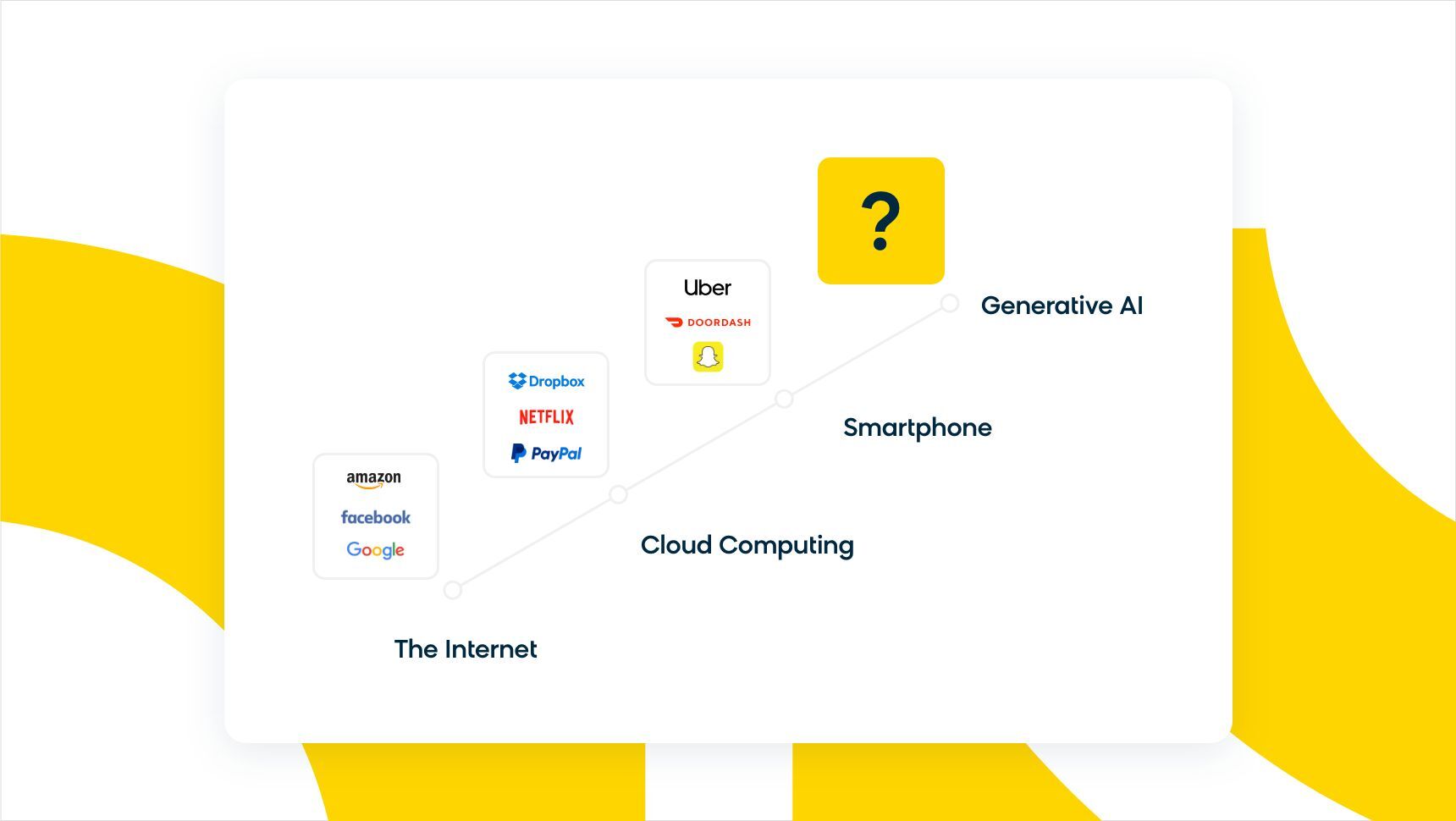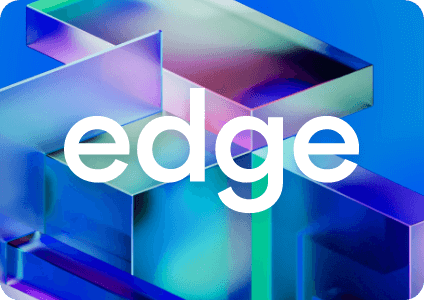All of us have used a search box. Its purpose is well defined — you type something in, and you get results related to what you were looking for. If you’re on an ecommerce site, those results are products or services. Well, that’s what should happen, anyway, but not every search vendor is capable of serving up results that are relevant, personalized, and optimized for important ecommerce metrics like conversions, revenue, and add-to-cart rate.
Despite the holes already in the market, an evolution is happening underneath the current landscape of ecommerce site search, and it’s made a big splash in the court of public opinion over the past year. That’s right — generative AI has entered the chat with ChatGPT and Gemini, just some of the many foundation models now available. More people are also curious about the tech behind generative AI, known as “large language models” or LLMs, which use massive amounts of data to learn, respond, and even generate human-like language for different queries. The power of LLMs has even been compared to the human brain.
However, we should understand that LLMs are a two-sided coin — on one side, there are all the possibilities for deep learning and innovation, and on the other, there is a fair amount of risk. While large language models show a lot of potential, they also have a long way to go in terms of development (currently, valid questions are being raised about the ethics and potential risks associated with the global AI race). It’s especially important to remember that LLMs hold a lot of powerful (and dangerous) capabilities, like “Do Anything Now,” where people can subvert the AI’s purpose for their own amusement or gain.
All in all, it isn’t a perfect technology — although pretrained, LLMs require ongoing refinements and adjustments to ensure consistent accuracy and relevance. Even then, a big question on the minds of commerce professionals remains: Where do LLMs fit into a shopping scenario? Is it possible now?
Since artificial intelligence has never been (and will never be) a finite line drawn in the sand, this question is more complex and multi-faceted than it seems.
AI Should Already Be Embedded in Ecommerce Site Search
AI in ecommerce search today drives revenue by using a combination of recall and ranking algorithms and training data to deliver the most relevant results that match your shopper’s intent. This happens through a combination of a transformer model, like natural language processing (NLP) and machine learning (ML). NLP breaks down the context behind shoppers’ queries, and ML learns about your business by analyzing these behaviors. This self-learning AI becomes smarter daily and can rapidly adapt to your customers’ ever-changing needs as you continue to scale.
However, your business will need to see your customers as more than just “customers” to succeed in the current competitive landscape. The winners in ecommerce find the “seekers.” They look beyond a person’s singular identity as “the consumer” to uncover their true motivation behind wanting a certain product or service, then build digital shopping experiences specific to them. This is where AI and machine learning models can help tremendously, whether it’s crunching product and customer data to deliver insights and optimization suggestions or offering recommendations based on similar products.
As we look toward the future, we must recognize that the potential for LLMs to revolutionize ecommerce search lies in their ability to provide shoppers with hyper-personalized experiences without the typical prompting required of a traditional search bar.
Why Should Ecommerce Care About LLMs and Generative AI?
As we all probably know, ChatGPT took the conversation about generative AI to the mainstream and provided an environment where anyone could interact with it. Not only has it caused a lot of discussion around the current uses of AI within the ecommerce industry, but it also has a lot of professionals wondering what LLMs look like when we picture the future of ecommerce.
LLMs have a lot of potential use cases within the ecommerce industry, especially when it comes to brands and retailers assisting their customers through the search bar:
- LLM-Based Precision – Leveraging a large language model for search optimization marks a significant evolution in product search by making torso and long-tail searches, like “men’s running shoes” or “women’s hiking boots size 8,” more precise and relevant. LLM-based precision broadens search coverage across both broad and highly specific queries — crucial for linking users with products they’re truly interested in — which highlights the immense value of understanding search intent.
- LLM-Based Search Recall – Integrating tools like synonyms, spell corrections, and relaxation rules with LLMs enhances search recall by identifying similarities and semantic meanings in queries, surpassing traditional text-match systems. This approach improves search results for nuanced needs, such as “running shoes good for knees,” by focusing on semantic intent rather than just keywords. As a result, you’ll deliver quality search results for every query.
- Virtual Shopping Assistants – Powered by LLMs, vector technology, and personalization, virtual shopping assistants are set to transform online customer service into a conversational, intuitive experience that goes beyond chatbots. By understanding complex queries, connecting shoppers with suitable products through semantic recognition, and tailoring interactions based on customer data, conversational commerce merges the convenience of digital shopping with the personalized touch of in-store interactions.
It all comes back to the seeker and unlocking the full potential of their customer journey using generative AI. Take, for instance, when somebody is looking to decorate their living room with neutral, earthy tones, but they don’t know how to verbalize this “want” into a search query. Although the search terms might be unknown to the seeker, an LLM can bring context to their particular need through a simple conversation.
We just have to think of AI as the digital version of the Industrial Revolution — language models will revolutionize our world and how we live. Nonetheless, we must balance the innovation and creativity inherent in language models with human ingenuity.
The Newest Frontier: Agentic AI
More recently, we’ve been seeing rapid developments in the world of agentic AI. In a nutshell, agentic AI features artificial intelligence that can take initiative and act with goal-oriented behavior. Instead of simply following a set of commands, AI agents can take the objective you set and make decisions on the best way to reach those goals. It can reason, learn, adapt, and optimize — without the need for constant oversight or intervention.
This opens up a bevvy of opportunities for reshaping the shopping experience. For example, marketers can use agentic personalization to launch hyper-targeted campaigns in minutes or hours instead of weeks.
Agentic AI also helps power autonomous search, which can optimize search based on every interaction from a shopper. This allows brands to transform product discovery into a more conversational experience, which is what consumers are increasingly gravitating toward.
Look, for example, at Bloomreach Clarity, our conversational shopping agent. It’s embedded directly in the website at key moments in a shopper’s journey (such as on product and checkout pages or within the search bar) and improves consumer confidence by answering questions, sharing expertise, and providing tailored recommendations. This level of personalization is only made possible through AI and LLMs, and it’s set to completely change the way people shop.
As large language models continue to evolve, you’ll see a fundamental shift in what consumers expect out of their experiences with your brand. Stay on top of the latest advancements in agentic AI and LLMs by visiting our site.
















